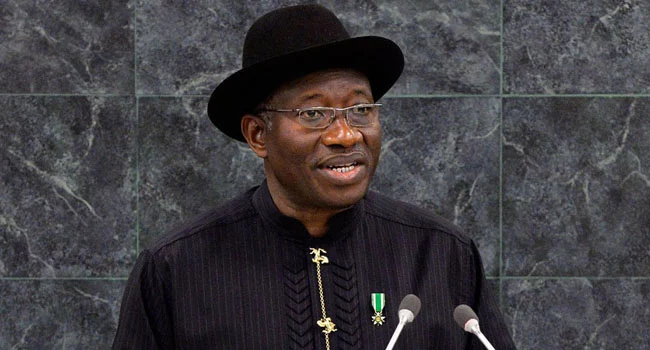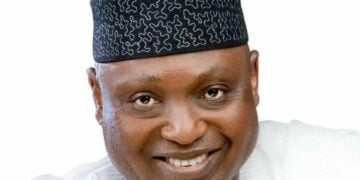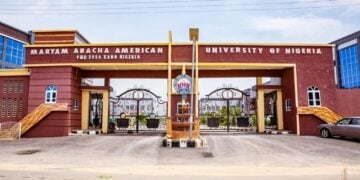Former President Goodluck Jonathan, on Friday, disclosed that he expected that the Boko Haram insurgency would end under the administration of late former President Muhammadu Buhari.
Jonathan hinged the expectation on the terrorist group’s nomination of the late president to represent them in negotiations with the Federal Government as president.
He stated this while speaking at the public presentation of “Scars”, a book authored by former Chief of Defence Staff, General Lucky Irabor, in Abuja.
Reflecting on the insurgency that defined much of his presidency, Jonathan said his administration had established several committees to explore options for peace with the deadly sect.
According to him, during one of such processes, the insurgents put forward Buhari as their preferred negotiator.
He added that, based on that, he felt it would have been easy for Buhari, when he emerged as president, to negotiate with the terrorists to surrender, but the insurgency still persisted.
“One of the committees we set up then, the Boko Haram nominated Buhari to lead their team to negotiate with government.
“So, I was feeling that, oh, if they nominated Buhari to represent them and have a discussion with the government committee, then when Buhari took over, it could have been an easy way to negotiate with them and they would have handed over their guns. But it was still there till today,” he said.
Jonathan noted that the inability of Buhari to eradicate Boko Haram terrorists, showed that the crisis was more complex than often portrayed.
“If you conduct research and interview many people, you will only get part of the story, but never the full story of Boko Haram. I was there. Boko Haram started in 2009 when I was vice president. I took over in 2010 and spent five years battling the insurgency until I left office.
“I thought that after I left, within a reasonable time, General Buhari would wipe them out. But even today, Boko Haram is still there. The issue of Boko Haram is far more complex than it is often presented.
“So, it’s a bit complex, and not a matter of a single story. But I believe, as a nation, we have to look at the Boko Haram issue differently from the conventional approach. I believe one day, we’ll overcome it,” the former president said.
He commended General Irabor for documenting the events clearly. “That way, when we write our own accounts, we can borrow from such documentation. I also believe that all the military officers involved in the Boko Haram saga should provide information about what the group truly stood for.”
Jonathan also stressed that the issue of Boko Haram was beyond hunger, adding that his administration employed so many strategies but did not work.
“If it was only about hunger—because we tried different options—I don’t want to sound like I’m defending my government. That will be left for history when we document our books. But I believe we did our best; we set up different committees and tried various approaches during the five years I was in office. I believe the late Buhari too must have tried his best.
“I believe the government, luckily, with the Defence Minister here and the Service Chiefs represented, must adopt a slightly different approach. God willing, we will be able to resolve this crisis,” he stated.
The former president further described the abduction of the Chibok schoolgirls in 2014 as a permanent scar on his administration.
He added that he hoped some leaders of the insurgent group would eventually document their actions, similar to how key actors of the Nigerian Civil War wrote their own accounts, to provide clarity on the insurgency’s motives.
He said, “One of the major scars on my government, and it will remain on my face, as Bishop Kukah said, no plastic or cosmetic surgeon can remove it, is the issue of the Chibok girls.
“It is a scar I will die with. But perhaps later, more details may become known, and that too has to do with Boko Haram.
“What did they really want? Our chairman once raised the issue when he interviewed some of them, and they gave him certain perspectives. But I pray that one day, some of the Boko Haram leaders may be literate enough to document what they have done, so that people will truly understand what they wanted. It is similar to the story of the Nigerian Civil War.”
Jonathan urged the current administration to consider the ‘carrot and stick’ approach to address the insurgency that has lasted over a decade.
He said, “Issue of ‘carrots and the stick’ may be adopted, and yes, probably the needs are there, but if you look at the weapons they use, and you value the weapons, then you know that these are not hungry people.
“So, the soldiers that sometimes capture some of the weapons will see better, but the weapons they use, the ammunitions they use, sometimes they even have more ammunitions than our soldiers. Where are these guns, sophisticated weapons coming from? And you begin to see that the external hands are also involved, especially when I was president.”





